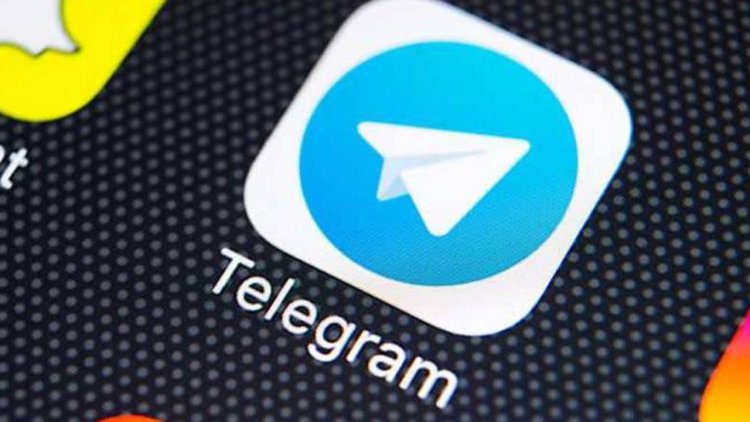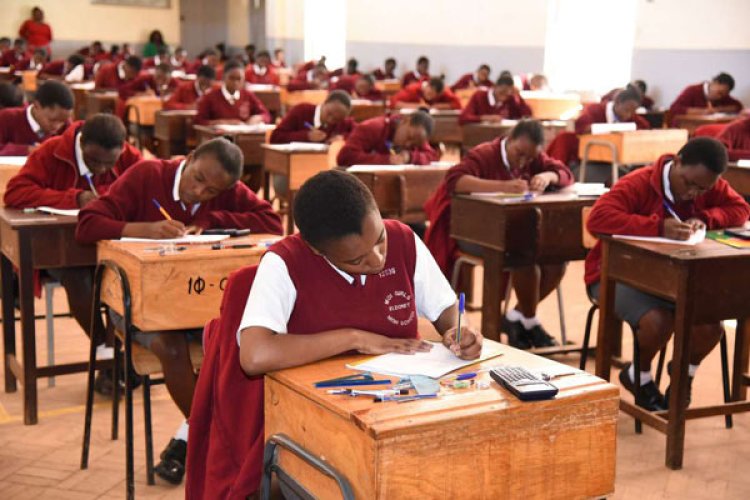Explained: Are Telegram Outages In Kenya Linked To 2023 KCSE?
Kenyan users nonetheless complained about experiencing delays on the platform. For instance, trying to log in on the app via a browser could be met by the message “web.telegram.org took too long to respond”.

Several Kenyans using Telegram messenger have for the past week or so reported multiple outages which have locked them out of the popular messaging app.
Telegram is an encrypted, cloud-based, cross-platform instant messaging service launched in 2013 which allows users to exchange messages, share media, files of any type, live location and hold private and group voice or video calls, as well as public livestreams.
Viral Tea had trouble sending and receiving messages as well as media both through its official Telegram channel and via other channels, though Downdetector.com, a website known for detecting service outages, showed few reports, meaning the issue was likely affecting Kenya only.
Kenyan users nonetheless complained about experiencing delays on the platform. For instance, trying to log in on the app via a browser could be met by the message “web.telegram.org took too long to respond”.
Screengrab of Viral Tea Ke's official Telegram channel. /TELEGRAM.VIRALTEAKE
Another issue Telegram users encountered is the delay in updating channels, with users getting notifications from the app on PC and Mobile as usual.
However, when one opens the app, they may discover that the Channel that has just sent a notification is not updated, a delay that has no consistent timing and currently varies from a few minutes to a few hours.
As we also noticed, the same delay applies in sending messages, whereby users' messages on the chat platform can remain unsent for much longer than usual. The search bar on the platform may display the message “reconnecting” prompting a user to think they have network issues.
On its official channels, the platform has not acknowledged it is facing issues, a matter which has left netizens guessing with some rechecking with their Internet Service Providers (ISPs) to find out if the platform has been blocked within the country.
In response to the issue, many users turned to Virtual Private Networks (VPNs) to maintain their access to Telegram.
VPNs are tools that create a secure tunnel for your internet connection, hiding your real IP address and replacing it with one from a different location. This allows users to bypass geo-restrictions and access content that may be blocked in their current location.
A local telco took notice of the downtimes and stated “We are working to resolve the Telegram issue as soon as possible and we will inform you once a permanent fix has been done”.
Some netizens claimed that the outage within the country was on purpose, a rare instance of a messaging app being blocked by local providers.
"For the past like 5-6 days, Kenyans have been complaining about Telegram outages. Could it be linked to cases of KCSE leakages spread through the platform as a countermeasure?" Egline Samoei posed on X.
In the past, similar incidents have occurred in various parts of the world, often due to political or regulatory reasons. Should it be confirmed that access to Telegram was intentionally disrupted, it would signify a shift towards a more controlled internet environment in Kenya, where the government or other entities might feel empowered to block access to certain applications or websites at their discretion.
Viral Tea was unable to independently determine if the Telegram outage was directly connected to the 2023 Kenya Certificate of Secondary Education (KCSE) national examinations.
Nonetheless, the app, which can sustain large public groups of up to 200,000 members, or share one-way updates to unlimited audiences via channels, has recently emerged as a notorious medium which Kenyans have used in the past to circulate examination material.
Just recently, six social media admins operating various Telegram sites involved in examination malpractices in the KCSE exams were arrested.
"The multi-agency operation by CAK officers, DCI officers attached to KNEC and all telecommunication service providers was launched after the Kenya National Examinations Council (KNEC) monitoring team identified over 32 social media (SM) platforms being used to share, sell and post examination materials in violation of KNEC Act and regulations.
"In a letter to the Communications Authority of Kenya dated October 19, 2023, that was copied to security agencies, the Deputy Director, Legal Service Division of KNEC Mr Befly Jemurgor Bisem listed the 32 suspicious SM telegram platforms, 30 of which were active with a membership of over 193,000 parents and students," stated the Directorate of Criminal Investigations (DCI) in part on Monday, November 6.


 admin
admin 




